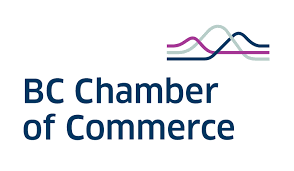CBT speaks to concerns over Castlegar's representation on board
Recent changes to the board of the Columbia Basin Trust (CBT) have prompted some questions as to why it has been so long since a Castlegar resident sat as a director, despite the significant impact the dams have had on this community (see story about board changes by clicking here ).
There have been, since the CBT’s inception in 1995, six Castlegar residents at the CBT board table, out of a total of 69 directors (including the current 12 directors). To put this number in perspective, there are more than 30 communities within the CBT’s purview. The most recent Castlegar director was David Brien, who completed his term in March, 2005.
President and Chief Executive Officer for the CBT, Johnny Strilaeff, said it’s important to understand that directors do not represent their city of residence at the CBT board table.
“They have to, by law, work in the best interests of the region,” Strilaeff said. “It’s critical to hear their local perspective, but in terms of their governance role … It’s different than an elected position, where they’re expected to lobby for the people who voted them into office.”
He said that, in fact, any director who lobbied for the interests of their own community at the expense of, or even merely without consideration for, the best interests of the other communities within CBT’s scope, they would quickly find themselves isolated and potentially even removed from their board position.
“They have a fiduciary responsibility to the corporation’s shareholders,” he said. “The CBT’s sole shareholder is the Province of B.C.
“We’ve been really fortunate in that (community rivalries) don’t show at the table,” he said. “That’s not to say there aren’t differences of opinion, which are a good thing, but we’re not experiencing that (sort of community bias) on our board.”
He added that Castlegar does have a say in at least one of the nominees – each of five regional districts put forward their nominee for the board (the sixth being presented by the Ktunaxa Nation Council). As Castlegar has a representative on the Regional District of Central Kootenay’s board, the city has a direct vote in the nominee the RDCK chooses (the current RDCK director sitting on the CBT board is Electoral Area C’s Larry Binks).
The other six of the 12 board seats are available for any member of the region to apply. Candidates are vetted by The Crown Agencies and Board Resourcing Office (CABRO), with the ultimate appointments being made by the Minister whose portfolio oversees the CBT, currently Hon. Katrine Conroy, Minister of Children and Family Development, and before that, Hon. Bill Bennett, Minister of Energy.
The decisions surrounding those six directors have little to do with their community of residence, but rather the skill sets they bring to a very complicated table, overseeing a business with assets valued at well over $1 billion.
“New directors are often surprised at how broad and complicated our business is,” Strilaeff said, adding basic skill sets required of any board member include, but are not limited to, investment management, business management, community engagement, human resources, finance, accounting, auditing, and a strong understanding of the workings of both local and provincial government.
Once candidates are vetted, Conroy works directly with CBT executive to find the best mix of diverse skill sets, ideally with each director filling a specific need or gap in the corporation’s governance.
“The primary thing is making sure there’s a balance of skills,” Strilaeff said.
He said he’s had Castlegar residents express interest in serving on the board, but doesn’t know if any have actually applied. He also said that anyone interested in putting their hat in the ring is welcome to contact him directly for more information. You can email him at ceo@cbt.org


























